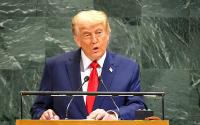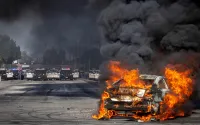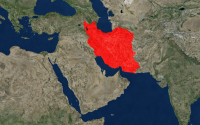December 12, 2002The Guardian
Selective amnesia, a common complaint among political leaders and commentators, looks certain to cloud today's EU summit in Copenhagen.
Giving Turkey an early date to join is one of the key issues, fuelled by the argument that this predominantly Muslim country needs to be brought into a major organisation that is dedicated to democracy. The prospect of membership will encourage Turkey's secular modernisers and strengthen internal reform, it is said. The United States, which is anxious to get Turkey's help in its war on Iraq, is crudely interfering in the EU's decision and pressing for a positive signal from Copenhagen.
Strange, then, that people forget that for half a century Turkey has been a full member of a large institution on the European continent which calls itself a defender of democracy. I refer to Nato. As the alliance continues to expand into lands once ruled by the Soviet Union, Nato's supporters have been praising its record as a champion of liberal values. On the hard right, the Pentagon hawk Richard Perle says Nato is as legitimate as the United Nations, if not more so, when it comes to the international use of force. "It is composed of liberal democracies that have exhibited since Nato's inception an absence of self-aggrandisement and a responsible effort to bring about peace and stability. ... The United Nations happens to contain a lot of dictatorships," he snorted recently. Outside government, commentators such as Timothy Garton Ash have hailed Nato as a "European peace movement" and "a driving force for democratisation".
Turkey fits uncomfortably into this picture of success. For 50 years Nato has consistently turned a blind eye to Turkey's democratic deficit. The treatment of the Kurdish population has been a particular disgrace. Nato did not prevent the Turkish authorities from treating the country's Kurdish population with contempt and brutality. On the contrary Nato encouraged it, by selling Turkey the military hardware to repress and kill tens of thousands of Kurds both inside Turkey and across the border in northern Iraq. The human rights crimes were as grotesque as anything done by Slobodan Milosevic during the break-up of Yugoslavia yet no Nato government seriously raised its voice.
Nor did Nato stop the Turkish armed forces from seizing power in a coup in 1980. (It was equally passive when Turkey's Nato neighbour, Greece, succumbed to a military coup in 1967). After the Turkish coup, Nato did nothing significant to restore civilian rule. Then as now more interested in military bases than democracy, the US pressed European governments not to put even mild sanctions on Turkey because of its suppression of human rights.
On the peace front, Nato's record is just as poor. It allowed Turkey to invade Cyprus in 1974 and for the subsequent 28 years it has failed to end the occupation by using its much-vaunted power as a driving force for peace. The ceasefire lines which have held in Cyprus since 1974 are not policed by troops from Nato but by those of the United Nations. The latest peace proposals were worked out by Kofi Annan and other UN officials.
Nato claims it is their alliance membership which has prevented Turkey and Greece from slipping into armed conflict. It is true that the two countries have not gone to war since they joined Nato, but there is no proof that either ever seriously contemplated war or that, if they did, it was their Nato membership which restrained them - any more than it can be proven that the Soviet Union intended to invade western Europe after 1949 and that it was Nato's existence which prevented it. In both cases there is a long series of other factors which can explain why war did not happen.
There are organisations in Europe with a reasonably good record in promoting democracy, from the Council of Europe to the Organisation for Security and Cooperation in Europe. But primacy belongs to the European Union. Its rigorous membership criteria are having an effect in getting countries in eastern and central Europe with authoritarian traditions to start implementing the concepts of individual human rights, rule of law, and democratic governance. While Nato ignores human rights violations by its members, the EU conditions progress on their coming to an end. The contrast could not be starker. It is understandable that the elites of small nations which have lived in the Soviet shadow should be flattered by American attentions, and rush to get into Nato under the American imperial umbrella. The older states of Europe have no such need. They take a wider view of security and understand that cooperation with neighbours, aid for development, and conflict resolution through dialogue are at least as important as military arsenals. The EU should take Turkey in.






